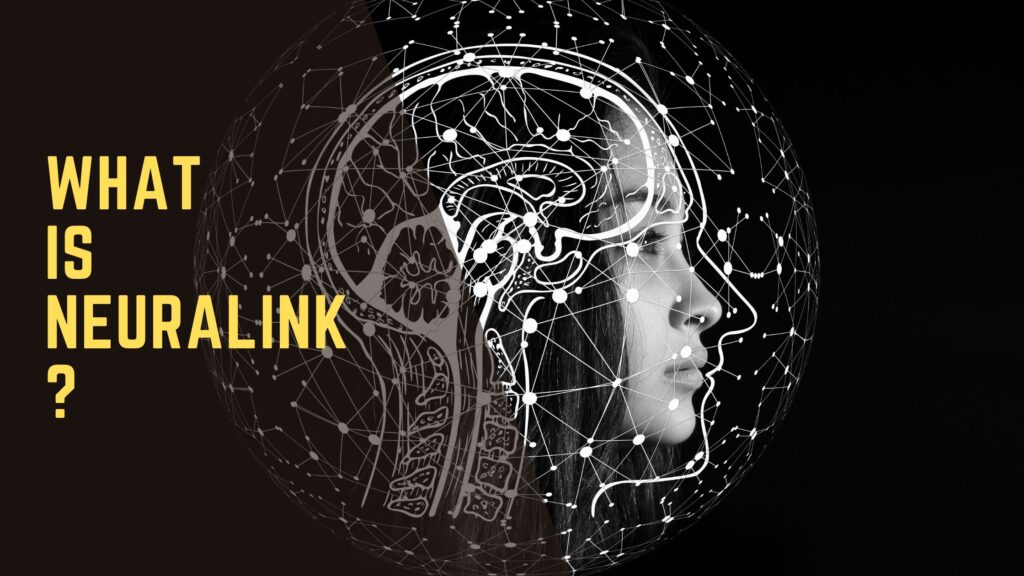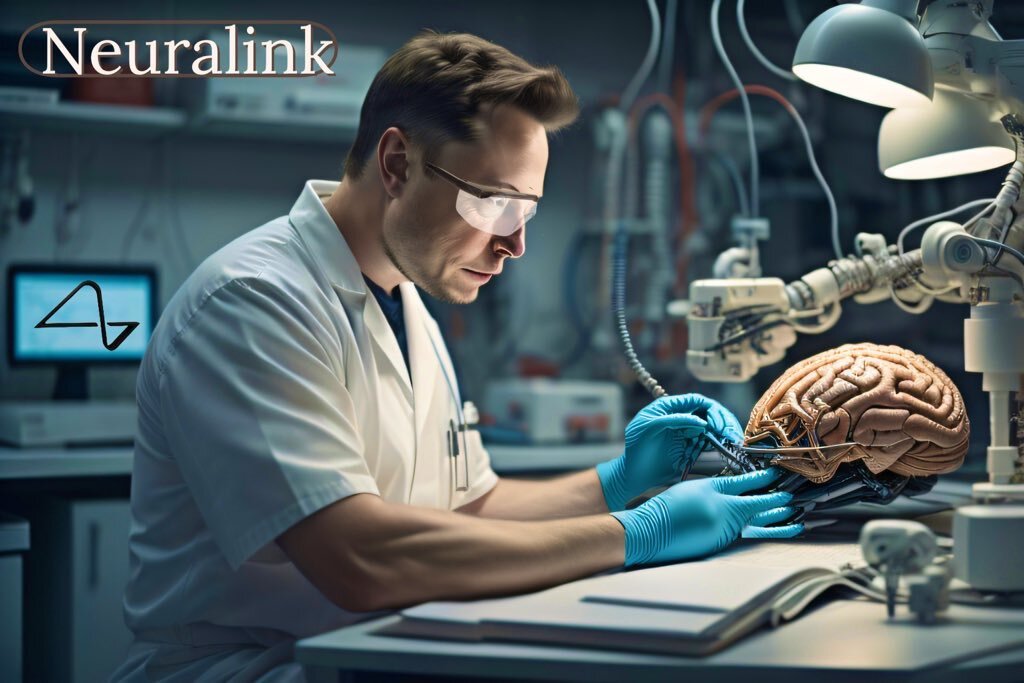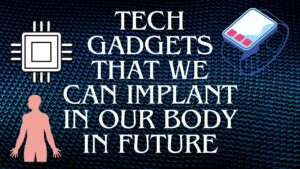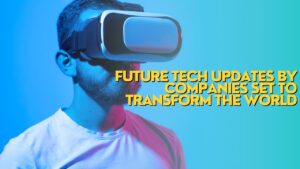Table of Contents
A Futuristic Dream or Ethical Nightmare?
Elon Musk’s Neuralink, the tech entrepreneur known for his ambitious ventures in electric vehicles, space exploration, and artificial intelligence, has set his sights on a new frontier: the human brain. His company, Neuralink, is developing a brain-computer interface (BCI) in the form of a tiny chip that is implanted in the skull. This chip has the potential to revolutionize the way we interact with technology, treat neurological disorders, and even enhance our cognitive abilities. However, the technology also raises a number of ethical concerns that need to be carefully considered before it becomes widely available.

What is Neuralink?
Neuralink’s chip is a small, flexible device that is implanted in the motor cortex of the brain. The chip contains thousands of tiny electrodes that can record neural activity. This activity can then be used to control external devices, such as computers, smartphones, or even prosthetic limbs. The chip can also be used to stimulate the brain, which could potentially be used to treat neurological disorders such as Parkinson’s disease or depression.
The Potential Benefits of Neuralink
Neuralink’s technology has the potential to offer a number of benefits. For people with paralysis or other neurological conditions, the chip could restore their ability to move or communicate. For healthy people, the chip could allow them to control devices in a more natural way, using their thoughts alone. The chip could also be used to enhance cognitive abilities, such as memory or learning.
The Ethical Concerns of Neuralink
Despite the potential benefits, Neuralink’s technology also raises a number of ethical concerns. One concern is the risk of hacking. If the chip is hacked, it could allow someone to access a person’s thoughts or even control their actions. Another concern is the potential for social inequality. If only wealthy people can afford to have the chip implanted, it could create a new class of “enhanced” humans. There are also concerns about the impact of the chip on our privacy and identity. If the chip can read our thoughts, how will this information be used? Who will have access to it?
The Future of Neuralink
Neuralink is still in the early stages of development, and it is likely to be several years before the technology is widely available. However, the potential benefits of the technology are significant, and it is clear that Neuralink is making progress. As the technology develops, it is important to have a open and honest discussion about the ethical concerns so that we can ensure that it is used in a responsible and beneficial way.
The Current State of Neuralink’s Clinical Trials: Elon Musk’s Neuralink

Elon Musk’s Neuralink has captured the world’s imagination with its ambitious vision of a brain-computer interface (BCI) chip. But where does this futuristic technology stand right now, particularly in the crucial realm of clinical trials? As of February 10, 2024, the landscape looks like this:
First Human Trial Approved:
- In May 2023, Neuralink received Investigational Device Exemption (IDE) approval from the US Food and Drug Administration (FDA) to begin the first-in-human clinical trial.
- This trial, aptly named the “PRIME Study,” focuses on individuals with quadriplegia due to cervical spinal cord injury or amyotrophic lateral sclerosis (ALS).
- The goal is to assess the safety and efficacy of the BCI in enabling participants to control external devices, primarily digital assistants and robotic limbs, through their thoughts.
Recruitment Underway:
- As of February 2024, Neuralink announced the official opening of participant recruitment for the PRIME Study.
- Potential participants can learn more and enroll through the Neuralink website and a dedicated patient registry.
Transparency Concerns:
- Despite the official go-ahead from the FDA, some experts express concerns about the lack of detailed information on the trial.
- The study protocol hasn’t been publicly released, and the trial details are absent from ClinicalTrials.gov, a widely used registry for clinical research.
Early Days, Long Road Ahead:
- It’s crucial to remember that this is the first human trial. It signifies a crucial step, but there’s a long road ahead before widespread adoption.
- The trial will likely involve a small number of participants and focus on safety and basic functionality initially.
- Subsequent phases may explore broader applications and involve more participants, gradually expanding the scope of the technology.
Ethical Considerations Remain Paramount:
- Even while advancements occur, discussions on the ethical implications of BCI technology like Neuralink’s chip continue.
- Questions regarding data privacy, potential cognitive impacts, and accessibility persist.
- Open dialogue and collaboration between developers, regulators, and the public are crucial to ensure responsible development and use of this powerful technology.
Neuralink’s BCI journey has begun, but it’s a marathon, not a sprint. The current state of clinical trials marks an exciting step, but transparency, ethical considerations, and rigorous testing remain paramount as we navigate this uncharted territory together.
Reactions to Neuralink:

The news of Neuralink and its brain-computer interface (BCI) chip has elicited a wide range of reactions, showcasing the complex emotions and ethical considerations surrounding this groundbreaking technology. Let’s dive into the perspectives of various stakeholders:
Experts:
- Scientists and Neuroethicists: Some experts laud the potential of Neuralink to restore function to individuals with paralysis and revolutionize medical treatments. Others urge caution, highlighting the need for more robust safety testing and addressing ethical concerns regarding privacy, hacking, and potential long-term effects.
- Neuroscientists: Many emphasize the technical challenges involved in achieving Neuralink’s ambitious goals. The brain is incredibly complex, and understanding and replicating its intricate functions remains a significant hurdle.
- Neurotechnologists: Some within the field see Neuralink as a significant advancement, potentially accelerating the development of BCI technology. However, others warn against unrealistic expectations and emphasize the need for rigorous scientific research before making claims about its capabilities.
Public:
- Individuals with Disabilities: Many see Neuralink as a glimmer of hope, offering the potential to regain lost abilities and independence. However, concerns remain regarding accessibility and affordability, ensuring equitable access to this potentially life-changing technology.
- Technology Enthusiasts: Many are excited about the possibilities of Neuralink, envisioning a future where humans and machines seamlessly interact. However, questions about the potential impact on our sense of self and the potential for misuse raise concerns.
- Bioethicists and Privacy Advocates: These groups highlight the ethical and societal implications of Neuralink. Their concerns range from data privacy and security to potential brain hacking and the creation of a technologically augmented class divide.
Overall:
- The reactions to Neuralink are diverse, reflecting the complexity of the technology and its potential impact.
- While the excitement is palpable, especially for individuals who could benefit directly, caution and skepticism remain prevalent.
- Open discussions and transparency from Neuralink, in collaboration with experts and the public, are crucial to ensure ethical development and responsible use of this powerful technology.
The Crucial Role of Governments and Regulators in Overseeing Neuralink
As Elon Musk’s Neuralink delves deeper into the intricate world of brain-computer interfaces (BCIs), the role of governments and regulators becomes paramount in ensuring its responsible development and ethical use. This groundbreaking technology, with its potential to revolutionize healthcare, communication, and even human cognition, necessitates a careful balance between innovation and safeguarding essential principles.
Elon Musk’s Neuralink-Key Areas of Regulatory Focus:
- Safety and Efficacy: Rigorous clinical trials and robust safety standards are crucial before widespread adoption. Regulators must establish clear guidelines for testing, data collection, and monitoring potential risks associated with BCI implantation and functionality.
- Data Privacy and Security: Neuralink deals with the most sensitive form of data — our thoughts and brain activity. Governments and regulators need to implement robust data protection frameworks, including clear ownership, access control, and security measures to prevent unauthorized use or hacking.
- Ethical Considerations: The ability to manipulate brain activity raises profound ethical questions. Regulators must address concerns about informed consent, potential for discrimination, and the impact on free will and identity. They should establish ethical guidelines and oversight mechanisms to ensure responsible development and use of the technology.
- Accessibility and Equity: Cost shouldn’t be a barrier to accessing this potentially life-changing technology. Governments and regulators can play a role in ensuring equitable access through funding research, promoting competition, and potentially establishing affordability programs.
- Transparency and Public Engagement: Open communication and public engagement are vital. Regulators should ensure transparency in the development process, including clinical trial data and potential risks and benefits. Public dialogue and education are crucial in building trust and shaping responsible policies.
International Collaboration:
Neuralink’s global reach necessitates international collaboration among regulatory bodies. Harmonizing standards and sharing best practices will ensure consistent oversight and prevent regulatory arbitrage.
Challenges and Considerations:
- Rapid Technological Advancements: The fast-paced nature of technological development can challenge regulators to keep pace. Adaptable and responsive regulatory frameworks are necessary.
- Balancing Innovation and Caution: Finding the right balance between encouraging innovation and protecting public safety can be tricky. Overly restrictive regulations could stifle progress, while lax ones could pose risks.
- Global Coordination: Establishing consistent standards and regulations across different countries with varying legal and ethical frameworks can be complex.
The Road Ahead:
The responsible development and use of Neuralink hinges on the active participation of governments and regulators. By establishing clear guidelines, fostering international collaboration, and prioritizing public safety and ethical considerations, they can help ensure that this transformative technology benefits all of humanity.
The Potential Impact of Neuralink on Society: Elon Musk’s Neuralink

Elon Musk’s Neuralink promises to bridge the gap between brain and machine, raising both hopes and anxieties about its potential impact on society. While the technology is in its early stages, it’s crucial to consider the wide-ranging societal transformations it could trigger.
Positive Impacts:
- Revolutionizing Healthcare: Neuralink’s primary focus lies in medical applications. It could restore mobility and communication to individuals with paralysis, blindness, or locked-in syndrome. Imagine controlling prosthetic limbs or wheelchairs effortlessly or regaining lost sensory experiences.
- Enhanced Cognitive Abilities: Brain-computer interfaces could potentially boost memory, focus, and learning, opening doors to personalized education and cognitive assistance.
- Unprecedented Communication: Direct brain-to-brain communication could transcend language barriers and revolutionize interpersonal interactions. Sharing thoughts and emotions seamlessly could foster deeper understanding and collaboration.
- Human-Machine Symbiosis: Integrating with technology through thought could enhance our everyday lives. Imagine controlling smart homes, accessing information, or performing complex tasks just by thinking.
Negative Impacts:
- Digital Divide and Inequality: Access to such powerful technology could exacerbate existing inequalities. If cost remains a barrier, it could create a divide between the “enhanced” and the “unenhanced,” leading to social and economic disparities.
- Privacy Concerns: Recording and accessing brain activity raises serious privacy concerns. Who owns the data generated by your thoughts? Will it be vulnerable to hacking or misuse?
- Ethical Dilemmas: The ability to manipulate brain activity opens up ethical questions on free will, identity, and cognitive manipulation. Could it be used for persuasion, surveillance, or even mind control?
- Brain Hacking and Security: The risk of hacking the brain-computer interface could have devastating consequences, allowing unauthorized access to thoughts, memories, or even controlling actions.
Navigating the Future:Elon Musk’s Neuralink
The potential impact of Neuralink is vast and complex. While the technology holds immense promise, it’s crucial to carefully consider the potential risks and ethical implications. Here are some key points to remember:
- Open and Transparent Development: Collaboration between developers, scientists, ethicists, and the public is vital to ensure responsible development and address concerns proactively.
- Strong Regulatory Frameworks: Regulatory bodies need to develop robust frameworks to govern the development and use of BCI technology, prioritizing safety, privacy, and ethical considerations.
- Public Education and Engagement: Open discussions and public education are essential to foster understanding and trust, enabling informed decisions about the future of this technology.
Ultimately, the impact of Neuralink on society will depend on how we develop and use it. By taking a responsible and ethical approach, we can harness its potential to create a better future for all, avoiding the dystopian scenarios often depicted in fiction. Remember, the future is not predetermined, and the choices we make today will shape how this technology shapes our world.
In Conclusion
Elon Musk’s Neuralink chip is a groundbreaking technology with the potential to revolutionize the way we interact with the world around us. However, it is important to carefully consider the ethical concerns before the technology becomes widely available. We need to ensure that the benefits of the technology outweigh the risks, and that it is used in a way that is fair and equitable for all.









